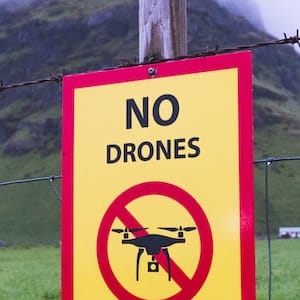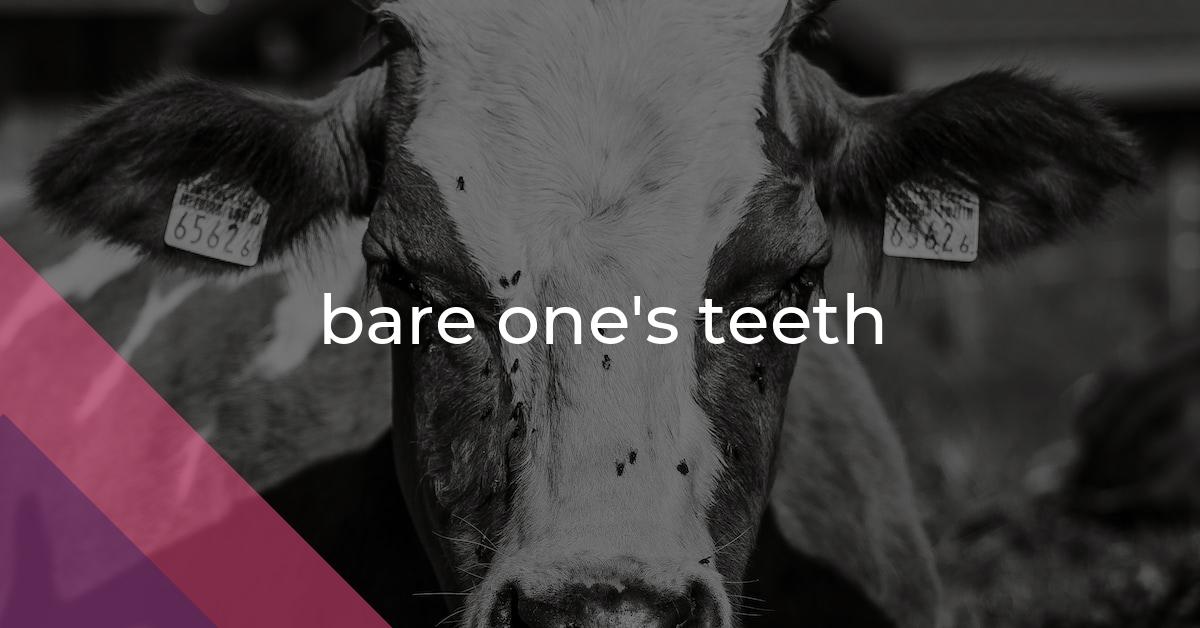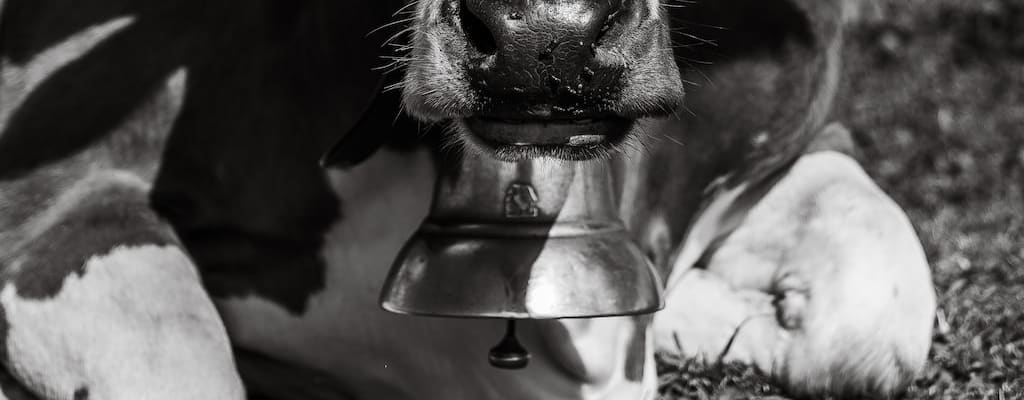bare one’s teeth: Idiom Meaning and Origin
What does ‘bare one's teeth’ mean?
The idiom bare one's teeth means to show anger, aggression, or hostility through a fierce or threatening facial expression, usually by displaying one's teeth. It is a metaphorical representation of animal instinct and is often used to describe confrontational or intimidating behavior.

Idiom Explorer
The idiom "lead with one's chin" means to put oneself at risk or in a vulnerable position by being outspoken or provocative.
The idiom *in your face* means to confront someone with something aggressively or boldly, often to provoke a reaction. It implies direct and unapologetic behavior, disregarding social boundaries.
The idiom "in someone's face" means to confront or challenge someone in a direct and aggressive manner, often done to assert dominance or to express anger or frustration.
The idiom "hold one's tongue" means to not speak or to remain silent, typically when faced with a situation where speaking might be inappropriate or cause trouble.
The idiom "hold one's jaw" means to remain silent or not speak, often in a situation where one has strong opinions or wants to share their thoughts. It implies control over one's words or emotions.
"Grit one's teeth" means to show determination or bravery in the face of a difficult or painful situation. It often implies enduring discomfort or pain while trying to remain strong or determined.
The idiom "go for the throat" means to attack or confront someone in a ruthless or determined manner, aiming to cause serious harm or defeat them completely.
The idiom "give someone a piece of one's mind" means to express one's anger or discontentment towards someone directly and forcefully.
Origin Unearthed
The idiom "bare one's teeth" refers to a display of aggression, hostility, or anger through one's facial expression or actions. It originated from the behavior of animals like wolves, dogs, and some primates, who bare their teeth as a warning or threat to others.
In human interactions, "bare one's teeth" conveys aggression or defiance in response to a perceived threat or challenge. It can be seen in confrontational situations where individuals resort to aggressive posturing or intimidation tactics to establish dominance or express displeasure.
The figurative meaning of baring one's teeth has evolved over time and can include behaviors beyond just revealing one's teeth. It encompasses raising one's voice, using harsh language, adopting a confrontational stance, or even resorting to physical aggression.
This idiom is commonly used in interpersonal conflicts, negotiations, politics, and sports to describe situations where individuals or groups showcase their strength, determination, or resolve in a forceful or assertive manner.
However, understanding the specific message conveyed by baring one's teeth can be challenging without considering other elements of nonverbal communication and the context in which it occurs. The intention behind baring one's teeth can vary based on the individual, culture, and circumstance.
For example, the idiom "bite one's nails" shares a similar figurative meaning to "bare one's teeth." It refers to a nervous or anxious behavior where someone bites their nails as a way to cope with stress or worry. While "bare one's teeth" implies aggression, "bite one's nails" suggests tension or unease.
Similarly, "bite one's lip" is another related idiom. It implies self-restraint or holding back one's emotions, particularly when faced with a challenging or frustrating situation. While "bare one's teeth" represents a display of aggression, "bite one's lip" suggests suppressing emotions.
Lastly, "bare one's soul" is another idiom connected to "bare one's teeth." It means revealing one's deepest thoughts, feelings, or vulnerabilities. While "bare one's teeth" signifies outward aggression, "bare one's soul" refers to inward disclosure.
So, when encountering the idiom "bare one's teeth," it's essential to consider the larger context, the accompanying nonverbal cues, and the specific individuals involved to fully grasp its intended meaning. While its origins lie in the animal kingdom's display of aggression, its usage in human interactions offers a rich and complex area for exploration, reminding us of the intricacies and subtleties of language and communication.
Example usage
Examples of how the idiom *bare one's teeth* can be used in a sentence:
- When confronted with aggression, the dog bared its teeth as a warning.
- During the argument, tensions rose and both parties bared their teeth, ready for a fight.
- The CEO bared his teeth when the employees presented their demands, showing his determination to resist their requests.
More "Aggression" idioms



